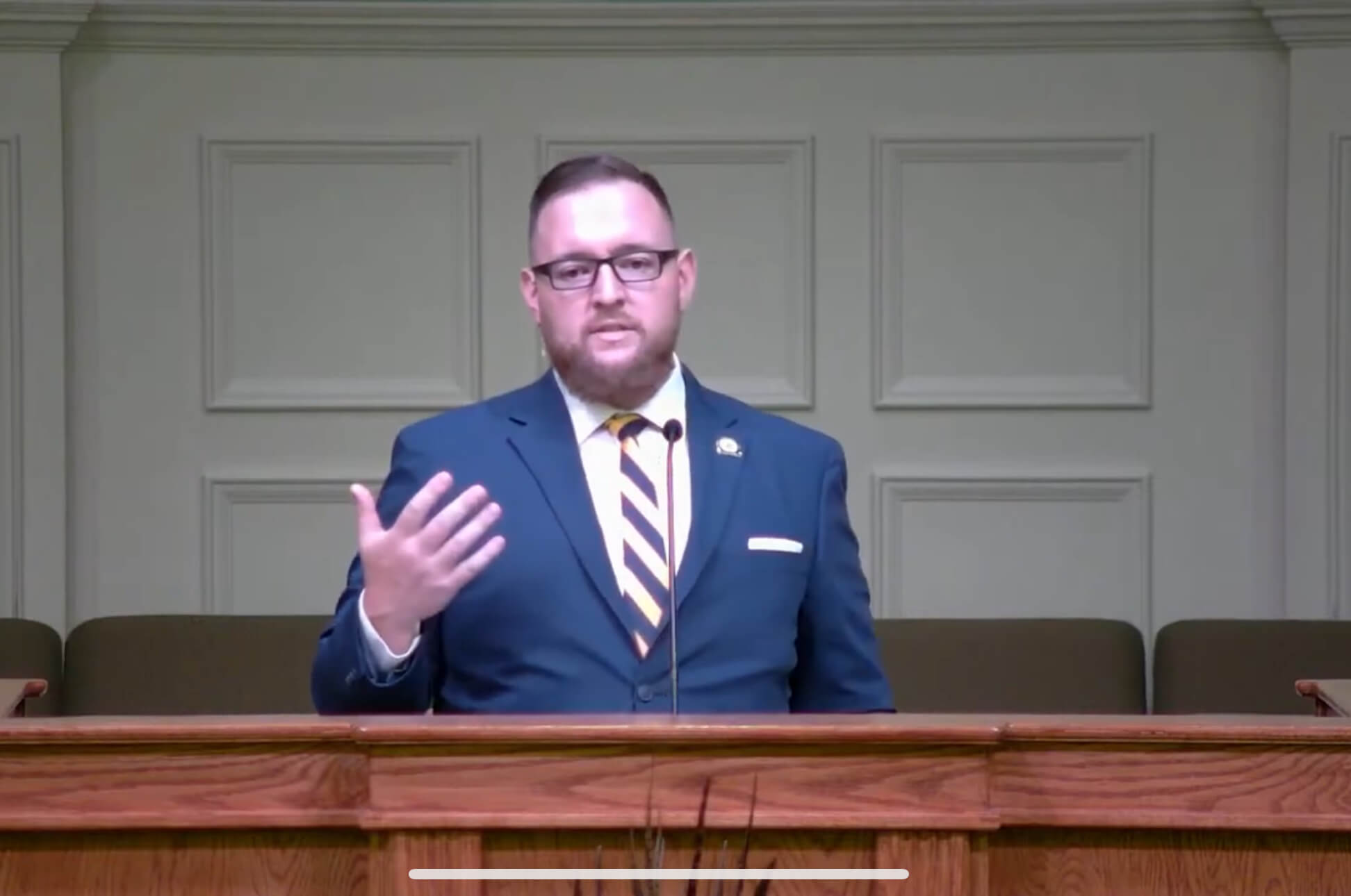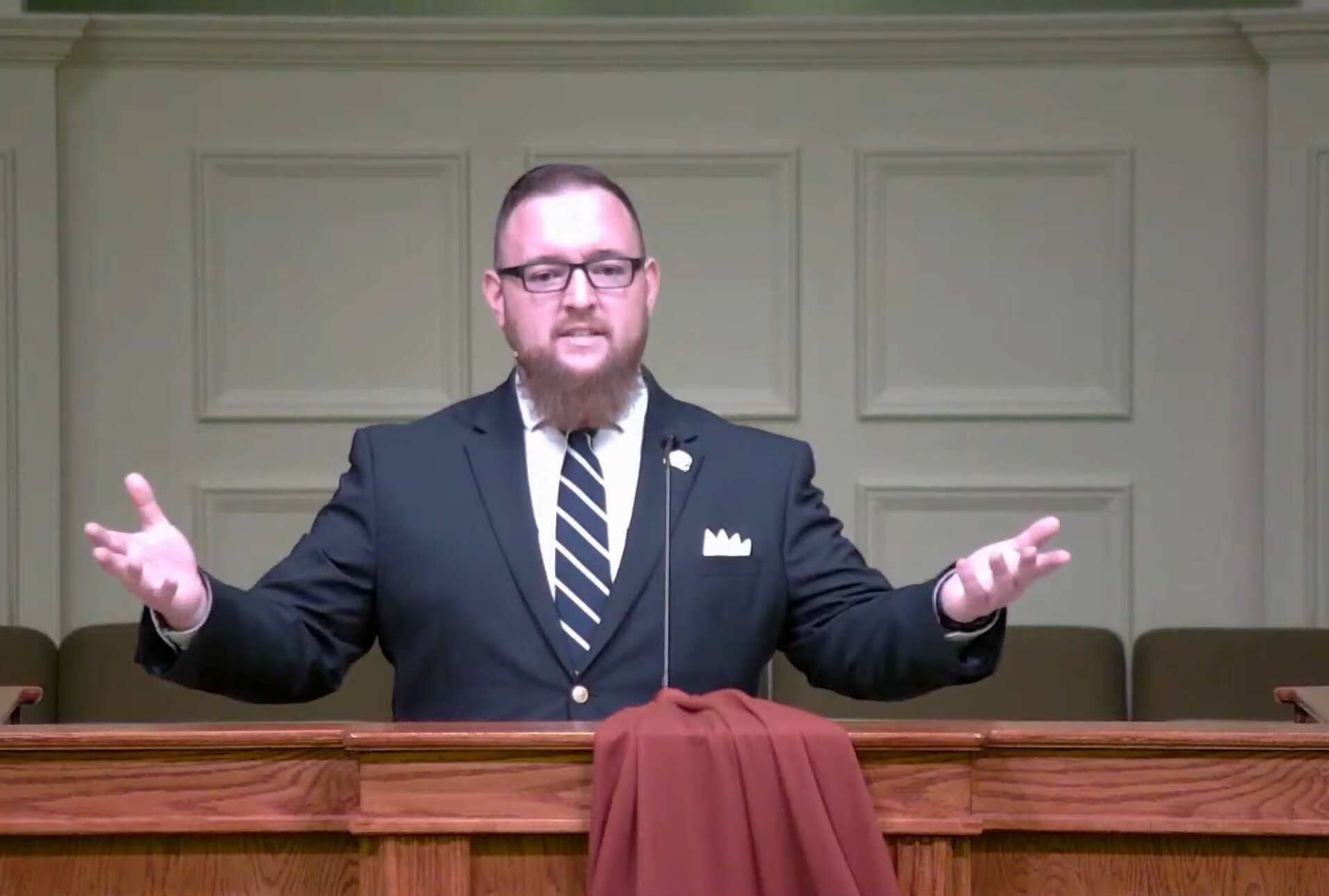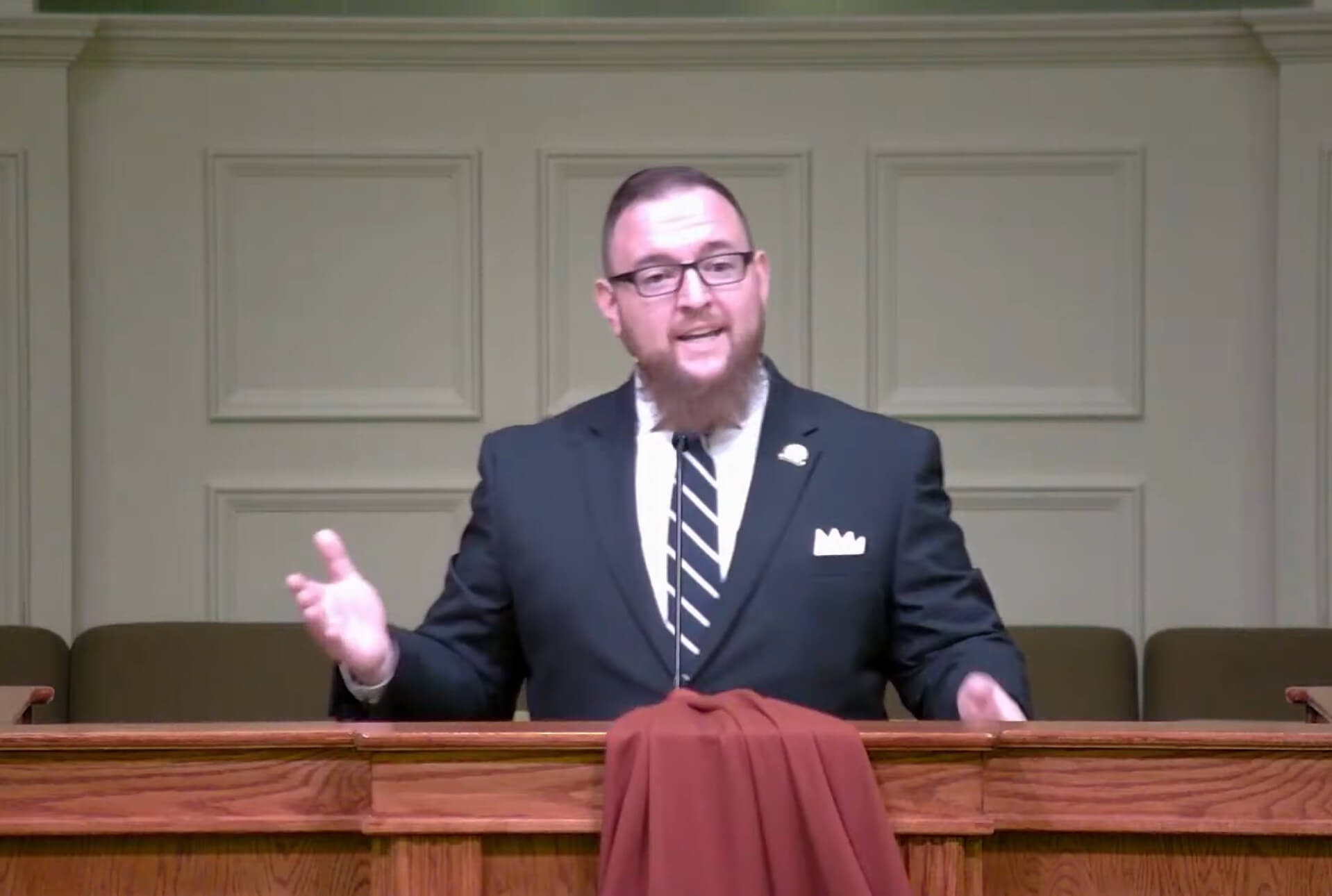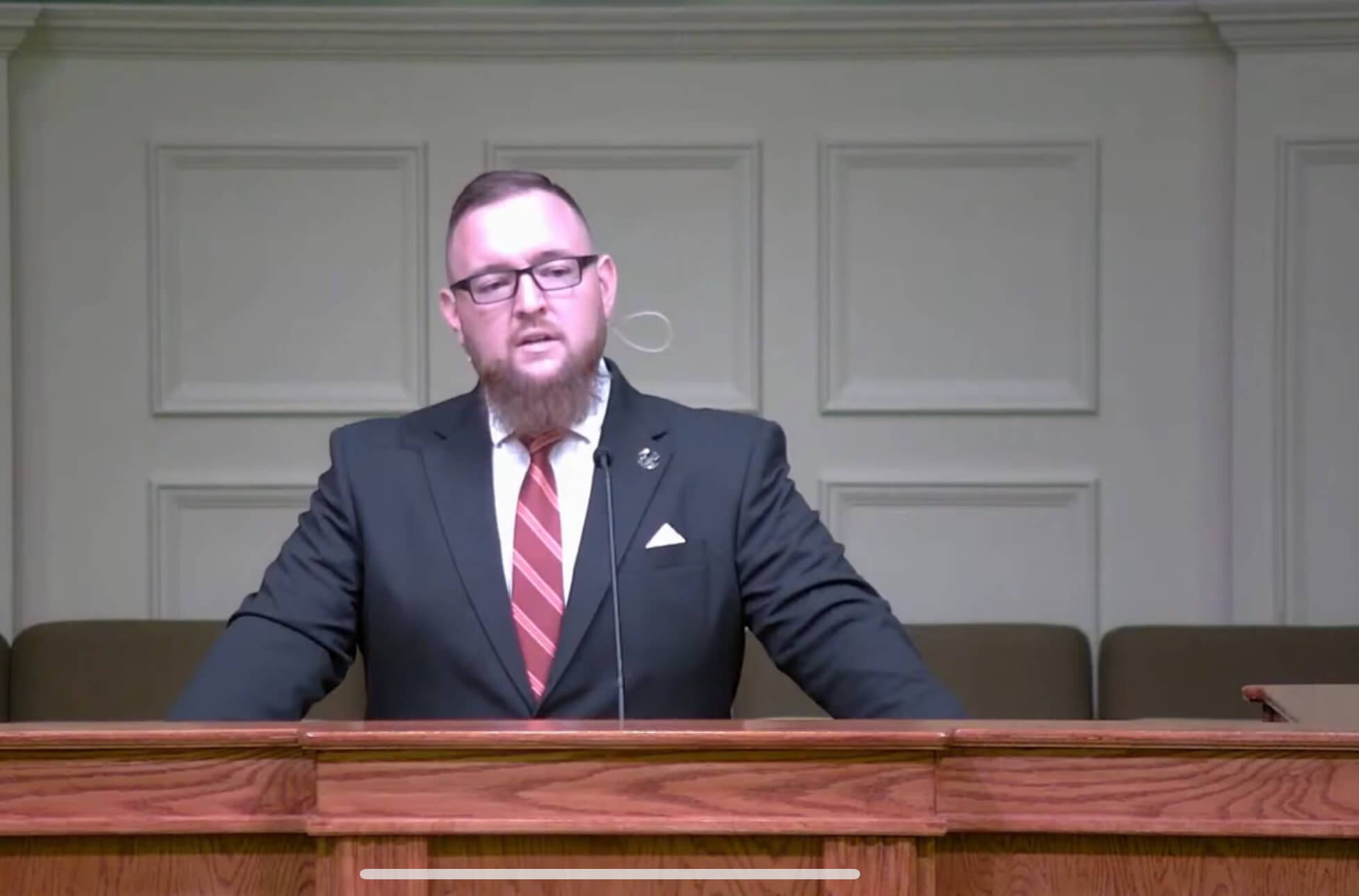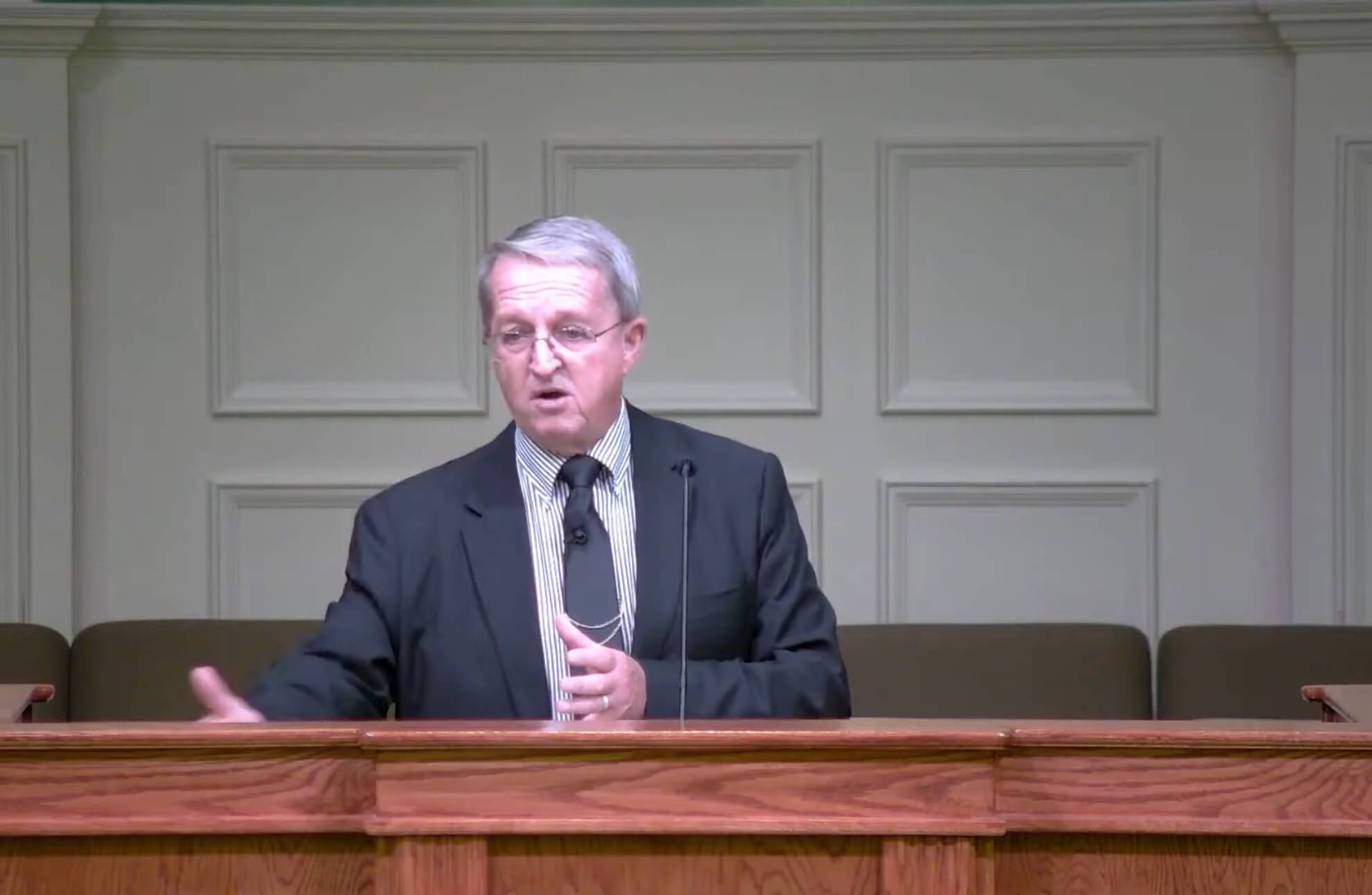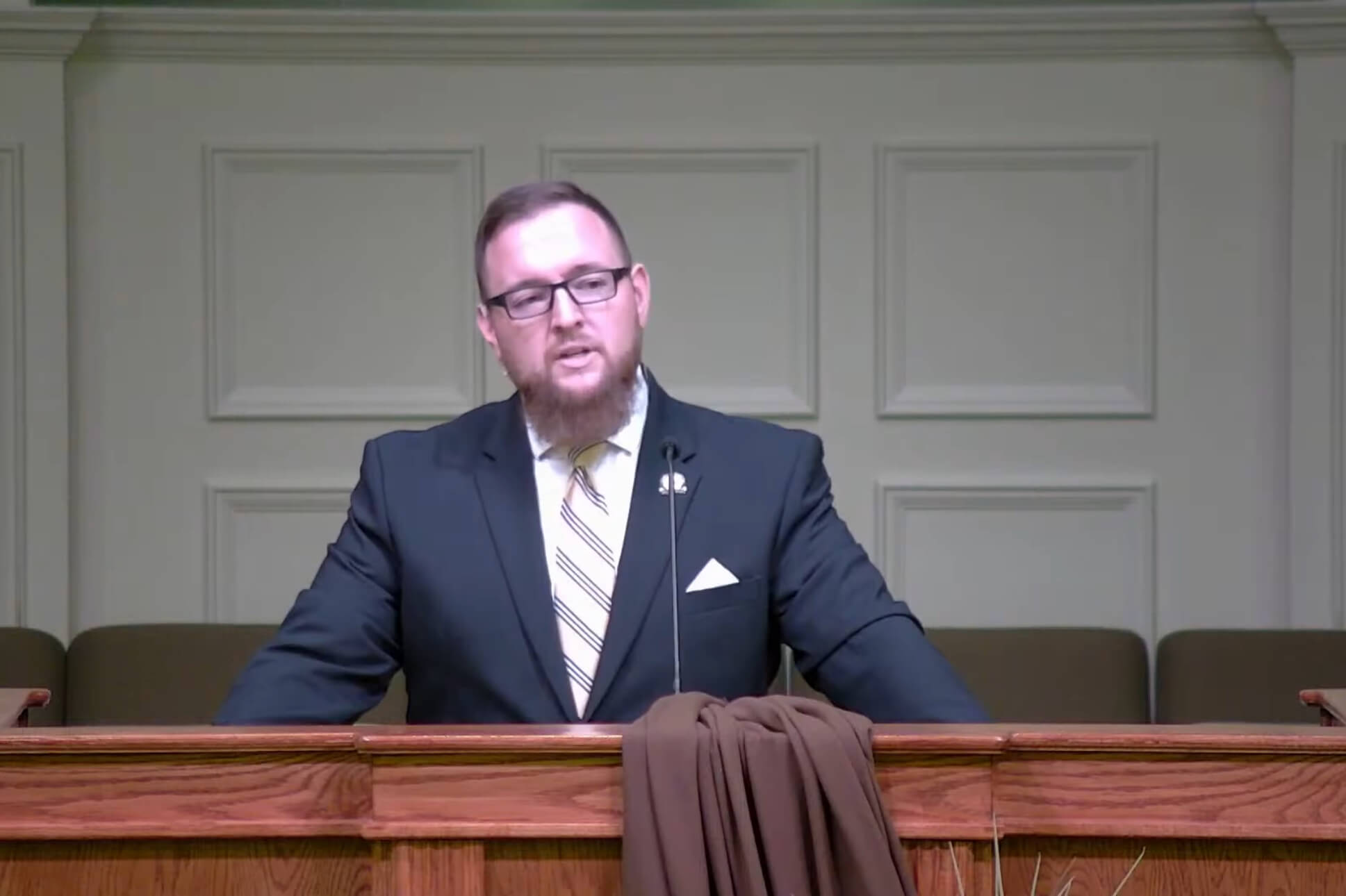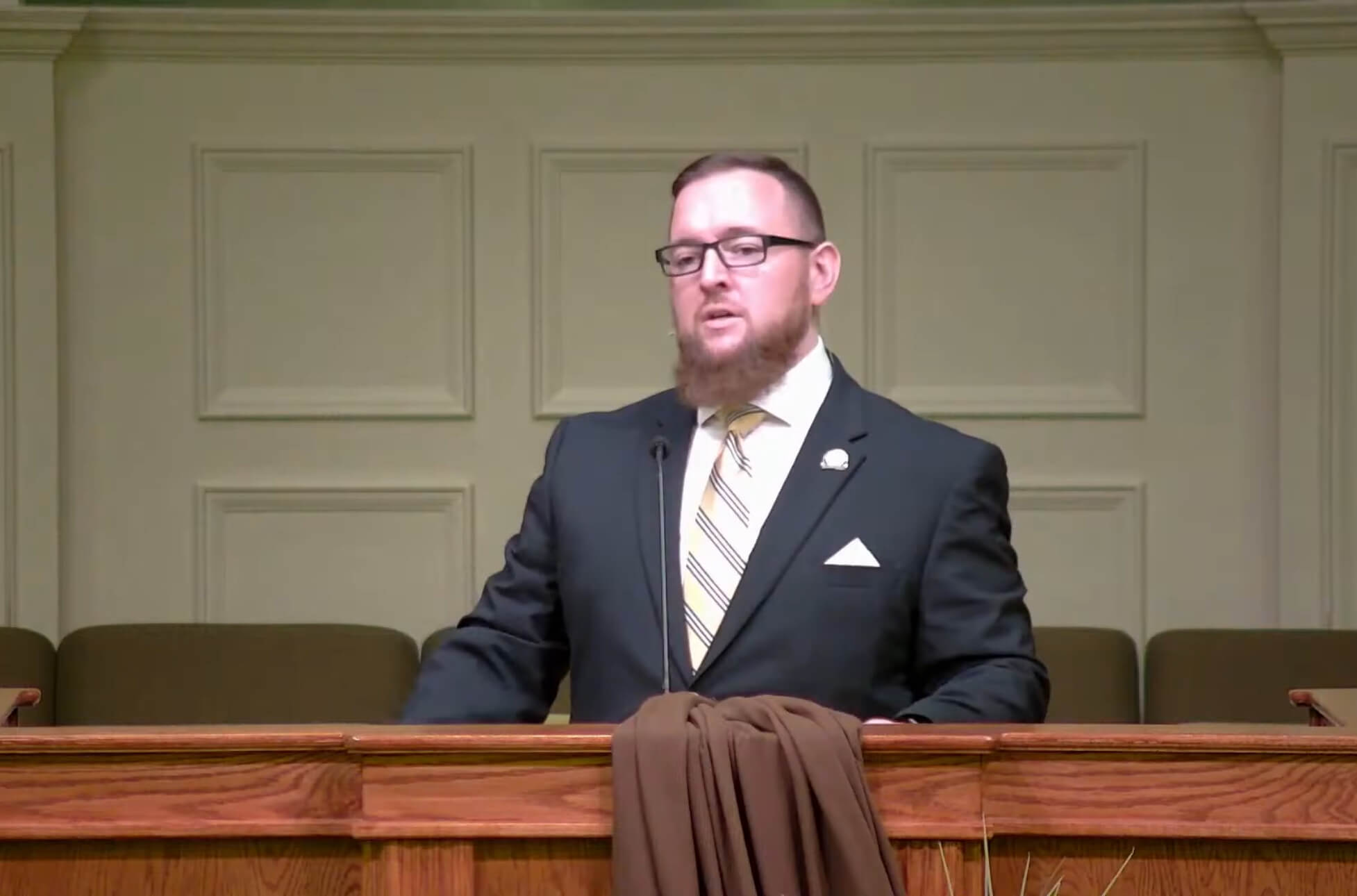Video
“Believing God”
1 John 5:6-12
Pastor Ryan J. McKeen
06/23/24
Audio
Transcript
Well, turn with me in your Bible once again to the book of 1 John.
We are coming near the end of John’s first letter. We began chapter five last week, and as we’ve seen throughout the letter, and we’ve been reminded over and over as John does, continually coming back to the same themes, That this letter is all about the assurance of our salvation. How is it that we know we are truly saved? And again, this is why John repeats the phrase, by this we know.
In fact, if you could name this letter with a title, you could probably call it, by this we know. Because the whole letter is filled with evidence by which we can know whether or not we are truly God’s people. And we’ve seen several sources of our assurance, and John’s pointed to our faith, to the confession of Christ and who he is, of our love for one another, of our obedience, and more.
And really, you could sum it all up in the statement that our assurance is found in Christ. It’s found in our confession of Christ. It’s found in our love of Christ and one another. It’s found in our obedience of Christ. Christ is the great theme under which all of our assurance is found. It is all about Christ. John’s been saying this from the very beginning of this letter, from the very first verses.
In chapter one, verses one through four, he begins with his testimony of Christ. He says, what was from the beginning, what we have heard, what we have seen with our eyes, what we beheld and touched with our hands concerning the word of life, And the life was manifested, and we have seen and bear witness and proclaim to you the eternal life, which was with the Father and was manifested to us. And what we have seen and heard, we proclaim to you also, so that you may have fellowship with us. And indeed, our fellowship is with the Father and with His Son, Jesus Christ. We are writing these things so that our joy may be made complete. that you may have fellowship with God, with the Father and His Son, Jesus Christ.
This letter is all about Christ, all about what we know of Christ, all about what we say about Christ, all about what we believe about Christ, and also how we show Christ in our lives. You can see this, again, in different places in this letter. John says in chapter 2, verse 22, who is the liar but the one who denies that Jesus is the Christ? In chapter 4, verse 2, every spirit that confesses that Jesus Christ has come in the flesh is from God. In chapter 5 here, verse 1, everyone who believes that Jesus is the Christ has been born of God. And as we’re winding down this letter, we see John narrow his focus more and more upon Christ. Again, next week we will cover in verse 13 his purpose statement. And he says specifically, these things I have written to you, who believe in the name of the Son of God, so that you may know that you have eternal life. It’s all about Christ.
Jesus Christ is the center point of all of history. He is the theme of the Bible and he is the theme of this letter. Everything that has ever happened revolves around Jesus Christ and what he’s done. And as we’ll see this evening, God himself has been testifying to this very fact. Right from the very first pages of the Bible, we’ve seen God telling us about Christ. In every era of history in the Bible, God steps into human history and speaks of Christ.
Right in the very first pages in Genesis 3.15, God, pronouncing the curse, says, I will put enmity between you, the serpent, and the woman, and between your seed and her seed. He shall bruise you on the head and you shall bruise Him on the heel.” Right from the very first moments of human history, God was telling us about Christ, about His promise to send Christ. Then as history progressed, later on, we could look at several places, but in the very end of the book of Genesis, as God is blessing the children of Israel.
In Genesis 49.10, in his blessing to Judah, Jacob says, the scepter shall not depart from Judah, nor the ruler’s staff from between his feet until Shiloh comes, and to him shall be the obedience of the peoples. Christ is coming. The Messiah is coming. As God is about to allow his people to be enslaved in Egypt, he reminds them there’s one coming. Christ is coming.
And then as God brings them out through the deliverance, through the hand of Moses, and he pronounces the curses upon Egypt and delivers them out of the hand of slavery, and as they’re in the wilderness, one event happens that explicitly reminds them of the promise. And it’s in Numbers 24 as we see the pagan prophet Balaam. Summoned to pronounce curses on Israel and God speaks through him and says in Numbers 24, 17, I see him but not now. I behold him but not near. A star shall come forth from Jacob and a scepter shall rise from Israel and crush through the forehead of Moab and tear down the sons of Sheth. The promise was coming. God kept telling his people about Christ.
And then as they came to the promised land and they had the time of the judges, you can see over and over different reminders of Christ. But one interesting place that I’m always reminded of when I think of the Old Testament promises of Christ is in Hannah’s song. And when she says in 1 Samuel 2.10, those who contend with Yahweh will be dismayed. And against them, he will thunder in the heavens. And Yahweh will render justice to the ends of the earth and He will give strength to His King. And He will exalt the horn of His anointed. This was before the kings came. And through Hannah, God announces He will exalt His King.
And then as the kings come on the scene, God makes a promise to David. In 2 Samuel chapter 7 verses 12 through 15, God speaking to David says, when your days are fulfilled and you lie down with your fathers, I will raise up one of your seed after you who will come forth from your own body and I will establish his kingdom. He shall build a house for my name and I will establish the throne of his kingdom forever. I will be a father to him and he will be a son to me. God’s reminding his people that the Christ is coming. We see this throughout the rest of the Old Testament in Psalm 2.
Psalm 2 speaks specifically of the messianic king that was going to come and rule the nations. And it says near the end of Psalm 2 that this is the Son of God, this is the Messiah. Throughout the prophets, we see Jesus Christ prophesied. Isaiah 7.14 speaks that he will be born of a virgin. Micah said he would be born in Bethlehem. Hosea said he would come out of Egypt. Jeremiah told of his attempted murder at his birth, that he would be attempted to be killed right after he was born. Malachi spoke of the one who would come and prepare the way, speaking of John the Baptist. And again, Isaiah said he would be ministering in Galilee. We see more specific prophecies as we look throughout the Old Testament. Psalm 41, not verse nine, predicts his betrayal by a close friend. Psalm 22 speaks of very specific details of his crucifixion, and Isaiah 53 explains the significance of his death. And then Psalm 16 speaks of his resurrection. Over and over and over again, God’s telling his people about Christ.
And in fact, this is the very reason why Jesus rebuked the disciples on the road to Emmaus. As we see in Luke 24, verses 25 to 27, This is Jesus speaking to them after he’s risen from the dead and walking on the road with them. He says to them, oh foolish ones and slow of heart to believe all that the prophets have spoken. Was it not necessary for the Christ to suffer these things and to enter into his glory? Then beginning with Moses and with all the prophets, he interpreted to them the things concerning himself in all the scriptures. They should have known.
God told them. God told them he was coming. God told them of the Christ. Jesus is the one that God’s plan and purpose is all about. God has been testifying to that fact since the very beginning of the Bible. And that’s exactly what John has to say to us in this passage tonight.
This is the witness of God, the testimony of God. And it’s really echoing John’s purpose statement in his gospel, why he wrote his account of Jesus’s life. We see that in John 20, 31, where he says, but these things have been written so that you may believe that Jesus is the Christ, the Son of God, and that by believing you will have life in his name. The whole gospel of John is testimony after testimony of who Jesus is. John wants his readers to know Jesus.
Because knowing Jesus is everything. Knowing Jesus is life itself. And John has gone to great lengths in this very letter to tell us who he knows Jesus to be. And now he is done giving his own account. He’s done bearing his own witness. He’s done giving his own testimony as to who Jesus is. And now he points us to the fact that God has already spoken on this matter. God has already settled who Jesus Christ is. And we need to believe the testimony of God. That word testify or testimony or bear witness. However that word is translated in your translation, that is the focus of this entire section. It appears nine times in this passage this evening.
And we spoke this morning a little bit about this word. It’s the word martus, or martyr. It’s where we get the word martyr from. When someone dies for testifying or bearing witness to Christ, they are martyred. They are killed for their testimony. And tonight, we’re talking about the testimony of God, God’s testimony of who Jesus Christ is.
And what we’ll see in our text this evening are three different aspects of God’s testimony. We’re gonna cover verses six through verse 12, and we’re gonna see three aspects of the testimony about Jesus Christ, and that is the reliability of God’s testimony. Then we’ll see the response to God’s testimony, And lastly, we will see the result of God’s testimony.
So I’m going to read our passage this evening, 1 John 5, verses 6 through 12. This is the one who came by water and the blood, Jesus Christ. Not with water only, but with the water and with the blood. It is the Spirit who bears witness, because the Spirit is the truth. There are three that bear witness, the Spirit, and the water, and the blood. And the three are in agreement. If we receive the witness of men, the witness of God is greater. For the witness of God is this, that he has borne witness about his Son. The one who believes in the Son of God has this witness in himself. The one who does not believe in God has made him a liar. because he has not believed in the witness which God has borne witness about his Son. And the witness is this, that God gave us eternal life. And this life is in his Son. He who has not the Son, or he who has the Son has life, he who does not have the Son of God does not have life.
As we read this section, it’s easy to get a little lost in it. because John really repeats himself a lot. He goes back and forth, and it’s hard to follow the argument that he’s making. So we’re going to break it down and show you exactly what John is saying here in this section, and really he’s showing us God’s own testimony of who his son is. And in this previous section, verses 1 through 5, we saw John speak of overcomers and the blessings that come with being an overcomer. And overcomers are those who believe that Jesus Christ is the Son of God.
And here, John begins to anticipate some questions. Questions as to why they should believe John. Why should we believe you, John? Why should we believe that Jesus is who you claim him to be? After all, Jesus’ own people rejected Him. Jesus’ own people didn’t believe Him. Why should we?
In John 1 verse 11, in the Gospel of John, it says, He came to His own and His own received Him not. The Jews called Him a liar, a deceiver. They accused Him of leading the people astray. They accused Him of an insurrection. They accused him of being a glutton and a drunkard. They said he was insane. And probably worst of all, they said he was demon possessed. They hated Jesus so much, they murdered him.
So if his own people didn’t believe him, if his own people, the people who were God’s people, didn’t believe who Jesus was, why should we believe John’s testimony that Jesus is the Christ, that he’s the Messiah, that he is God incarnate, that he’s the only savior for sinners? Why should we believe you, John?
Well, because of God’s testimony is the bottom line. Because John can pontificate all he wants from his own eyewitness and his own account and the things he’s seen and testifies to, but the thing that really matters is what does God say about it? And what we see beginning in verse six is God’s testimony to this fact. In verse six he says, this is the one. who came by water and the blood.
So verse five, he says, who’s the one who overcomes the world, but he who believes that Jesus is the son of God. And then he says, this is the one. This is the one who came by water and blood. This is written in emphatic position. It’s really calling him the one twice. This is the one. This one is the one who came. Jesus is the one. He is the son of God. There is no other. Don’t miss your opportunity. This is the Christ.
And it says he came. Not that he was created, not that he began. He came. Jesus’ life did not begin when he was born. Jesus as the second person of the Trinity existed before the world began. He is the creator. So God’s testimony is that Jesus came into this world, not that he came into existence. He came into our world because in the incarnation, the eternal word of God became flesh and he dwelt among us.
In John’s gospel, he records the words of Jesus in John 16, 28, and he says, Jesus says, I came forth from the Father, and I have come into the world. I am leaving the world again, and I am going to the Father. Jesus is speaking of his preexistence. Jesus is saying, Joseph and Mary were not my beginning. I came from the Father, and I’m going back to the Father. And earlier in this letter, chapter 3, verse 8, John says, the Son of God was manifested for this purpose to destroy the works of the devil. He was manifested. He was revealed. He appeared. Not that He was created, not that He began or anything like that.
The incarnation of Christ is the central truth of Scripture. It’s the central truth of God’s redemptive plan. And it’s the foundation of our faith. And here in this passage in 1 John chapter five, God himself testifies to that very fact. And I’ll show you how he does that.
And he does that by giving three elements of his testimony here. Three elements of Jesus Christ’s life that God used to testify who he is. John mentions there in verse six, he came by water and blood. Now this, there’s a lot of different ideas as to what this water and blood is referring to and the best way to understand these as you continue to read the passage, the water is a reference to his baptism and the blood is to his death. Because in those specific events, God spoke forth and testified to the people there that this was his son.
These two events really bracket the Lord’s earthly ministry. And in both of them, the father testified concerning his son. And it’s interesting in verse seven, or later in verse six, he says, not with water only, but with water and with the blood. And you might be wondering, what is John talking about there? What does that mean? What does that got to do with anything? As I’ve made mention of several times, as we talked about this morning in Sunday school, there were certain false teachers in that time that taught certain things, and that’s exactly what John’s addressing here.
There were those who believed that God adopted Jesus as his son at his baptism, but then he rejected him at his death. They would deny the deity of Christ. They would deny that He came from the Father. And here John is saying, no, He came by the water in His baptism and He came by the blood. God Himself in human flesh dies on the cross. Jesus, the Son of God, was not just a creation whom God took to Himself at His baptism. Instead, God spoke from heaven. recognizing who his son is. Again, these false teachers claim that he died just a man, that he was not the God-man whose sacrificial death atoned for our sins.
And that was a satanic lie in the early church. Because, as John says in chapter 2, verse 2, he himself is the propitiation for our sins. If Jesus was not divine on the cross, he could not and did not conquer our sins and death. But as the New Testament testifies throughout, he was divine. He is God. He is God in the flesh. And he came to die on our behalf. 2 Corinthians 5.21 says, he made him who knew no sin to be sin for us so that we might become the righteousness of God in him. That is the testimony of God.
And the first element we see here is the water. John mentions he came by the water. This is the first witness on God’s side. At the beginning of Christ’s earthly ministry, The father gave testimony of his son at his baptism. John the Baptist was baptizing people for the repentance of sin, and Jesus came along. Now, Jesus had never sinned, but he came to John to be baptized. By doing so, he publicly identified with sinners. Jesus was not admitting any sin on his behalf. He was identifying with the sinners he came to die for. And John understood who it was that was coming to him. And he said he was unworthy to baptize Jesus.
But in Matthew 3.15, Jesus tells John, permitted at this time for in this way it is fitting for us to fulfill all righteousness. Then he permitted it. And John baptized Jesus. This was to fulfill all righteousness. Jesus, identifying with the sinners He came to save, He needed to fully obey God in all things. And He lived a life of full obedience. Jesus always performed what God’s people were required to do. He never claimed any exemption to that. His perfect obedience made Him the perfect sacrifice, the spotless Lamb. And it’s because of that that his death makes atonement for our sins. And then after John baptizes him, in verse 16 of Matthew 3, it says this, and after being baptized, Jesus came up immediately from the water. And behold, the heavens were opened, and he saw the Spirit of God descending like a dove and coming upon him.
Now, we look to this as a revelation of the Trinity. That you have the Father in heaven and elsewhere we see him speak and say, this is my beloved Son. You have the Son in the water there and you have the Holy Spirit descending like a dove. Well, it is that revelation of the Holy Spirit, that physical representation of him, that presence that provided the proof of who Jesus is. It was the visible evidence of the father’s testimony. It was the father’s stamp of approval. The father bearing witness that this is my son.
We see this in John’s gospel, in John chapter one. John the Baptist is explaining what happened that day. In John one, verses 32 to 34, John bore witness saying, I have beheld the spirit descending as a dove out of heaven, and he abided on him. And I did not know him, but he who sent me to baptize with water said to me, the one upon whom you see the Spirit descending and abiding on him, this one is the one who baptizes with the Holy Spirit. And I myself have seen and have borne witness that this is the Son of God.”
So God told John the Baptist, there’s going to be one coming to you, and when you baptize him, the Spirit will descend and remain on him. And it happened. It happened exactly like God told him it would happen. And therefore, John knew God was right. This is the one. This is the one he told me about. God testified to who Jesus is. God was bearing witness to the authenticity of Jesus Christ, his only begotten son. And in verse 17, he says audibly from the clouds, Matthew 3.17, this is my beloved son in whom I am well pleased.
So that is the first element of God’s testimony that John is sharing with us in this passage, that he came by the water and we saw in his baptism God announce who Jesus is.
The second element John mentions is the blood. And just like he did at his baptism, the father testifies to Jesus in the miraculous events surrounding his crucifixion. As Jesus dies on the cross, the lights go out. Matthew 27, 45 says, from the sixth hour, darkness fell upon all the land until the ninth hour. That’s daylight time, and it’s dark out. In the middle of the day, God brought supernatural darkness upon the earth, symbolizing that the Father is pouring His wrath out on the Son on the cross, that Jesus is taking our sin on Himself on the cross.
And that was not the only miracle that happened. At the very moment of Jesus’ death, the veil in the temple was torn in two from top to bottom. That’s Matthew 27, 51. The veil that separates God’s dwelling place, where only the high priest could go, from all the rest of the people, that veil is torn in two. And that veil was huge. There was absolutely no way that a man could rip that apart by himself. This act on the father’s behalf showed his acceptance of Jesus’ sacrifice. And it showed that that barrier between God and his people was removed. That access to God was now available.
And there was another miracle that took place that day. We see this also in Matthew 27. After the veil is torn, in Matthew 27, 51, it continues and says, the earth shook, the rocks were split, the tombs were opened, and many bodies of the saints who had fallen asleep were raised, and coming out of the tombs after his resurrection, they entered the holy city and appeared to many. That’s Matthew 27, 51 to 53. God was showing everybody there what just happened. You killed my son. The rocks are split in two. The tombs are opened and the dead are raised and are walking about the city. It’s so convincing that one of the Roman centurions that crucified him says in verse 54, truly this was the son of God. His what have we done moment.
And not only that, if that wasn’t enough, all of these events were prophesied. God told us. Read Psalm 22 and Isaiah 53. God told us this was going to happen. And it happened, just like he said. God has been testifying of the coming of Christ and of the death of Christ for centuries. And then he miraculously brings it to pass. So the second element of God’s testimony is the blood, the water and the blood.
But then John mentions a third in verse six. It is the spirit who bears witness because the spirit is the truth. The father testified to the son of the son through the ministry of the spirit. The Holy Spirit is the Spirit of truth. He is true. And therefore, he is the source and revealer of truth. That’s exactly what Jesus said in John 15, 26, when he speaks of the Holy Spirit coming. He says, when the advocate comes, whom I will send to you from the Father, the Spirit of truth, who proceeds from the Father, he will bear witness about me. The Spirit was involved in Jesus’ whole life. in his conception, in his baptism, in the temptation, in the wilderness, and throughout his ministry. He was Spirit-empowered.
And then as Peter is in Cornelius’ house, speaking to all those gathered there that day, and he’s telling them of Christ, he cannot tell them of Christ without telling them also of the Spirit. He says in Acts 10.38, you know of Jesus of Nazareth, how God anointed him with the Holy Spirit and with power, and how he went about doing good and healing all who were oppressed by the devil, for God was with him. How did he know God was with him? Because of the Spirit. Jesus always did the will of the Father through the power of the Spirit. So the Spirit is the third element of God’s testimony. There are three that bear witness. Verse seven. There are three that bear witness. The Spirit, and the water, and the blood. And the three are in agreement.
So if we were in a court of law, there are three witnesses on God’s side. And every one of them have the same story. Jesus is the Christ, the Son of God. And he died for our sins. God’s testimony is true. God’s testimony holds up. And John says in verse nine, if we receive the witness of men, the witness of God is greater. For the witness of God is this, that he’s born witness about his son. He’s saying, God meets the standard of your human courts of law here. By the evidence of how many witnesses? Two or three. How many witnesses does God have? Three. And they all agree. Game over. God’s right.
God’s testimony holds up in human court and John says, we believe the witness of men and the witness of God is greater. For the witness of God is that he is born witness about his son. How foolish it is for us to accept the testimony of men about different matters and yet reject God’s testimony.
Now, I do need to address there’s a textual variant in this passage. And some of you may have noticed it if you have certain translations. The King James Version and the New King James Version, although they usually add a note, but between verses seven and eight there, There is a phrase that says, in heaven, the Father, the Word, and the Holy Spirit, and these three are one, and these are the three that bear witness on earth. So, the reason why a lot of the modern translations don’t have this, is because as we have found more and more manuscripts of the Greek text, and we’ve been able to see when those texts were written, this phrase doesn’t appear in the text until the Middle Ages.
So, this is what is commonly referred to the Comma Johannium, and it’s a section here, that, now, honestly, this is a true statement, that in heaven, the Father, the Word, and the Holy Spirit, these three are one, and there are three that bear witness on earth. That’s a true statement, but that probably wasn’t in the original text. What this probably is is somebody’s notes that got added into the manuscript as translation went on, because the earliest manuscripts we have don’t have it. Now, what do we do with it?
Well, it’s true. We know it’s true. It agrees with the rest of Scripture. There are three in heaven that bear witness, the Father, the Son, and the Spirit. That’s a true statement, so it’s not as though it’s wrong. but it’s probably not in the original. But does that mean we are denying the Trinity? No. We don’t rely upon this one passage for our belief in the Trinity. So what it is, it’s probably some scribe’s notes that he added in his own translation, and then as it got translated after that, they got added into the text. And now as we’ve had more and more discovery, we know that while it is true and it’s good doctrine, it’s probably not original. That’s why a lot of the newer translations don’t have that in there. Just an interesting thing, but don’t think that anybody was deleting the Word of God because it’s not in this translation or anything like that. There’s good reasons why it wasn’t kept in some of the more recent translations. So I just needed to make note of that before I move on in our text this evening.
So we have the, that’s really our number one point in this sermon, is the reliability of God’s testimony. He has three witnesses, the water, the blood, and the spirit. So now that we have the reliability of God’s testimony settled, that God’s testimony stands up to the standard of a court of law, now we need to determine what should be the response to this testimony.
What is the response to this that we must make? Well, we see that in verse 10. The one who believes in the Son of God has this witness in himself. The one who does not believe God has made him a liar because he has not believed in the witness which God has borne witness about his Son. So what do people do with God’s testimony? Well, what we do with this testimony is what determines our eternal destiny. There are really only two responses to God’s testimony. You can either believe it or you reject it. No one can remain neutral about Jesus Christ. Jesus said this.
In Matthew 12, 30, he said, he who is not with me is against me. And he who does not gather with me scatters. You’re either for him or against him. Not to make a decision about Christ is to make a decision. You are either with Him or against Him. You either believe God or you don’t. And he says, the one who believes in the Son of God has this witness in himself because saving faith in Jesus Christ results in eternal life. John has repeated this several times. Those who turn to the gospel, turn to Christ and away from their sinful life, receive eternal life.
And John says in chapter two, those who turn away from the gospel show that they were never saved in the first place. The one who does not believe God, as John says here, makes God a liar. God is on the witness stand in this passage. He has His evidence before you, and to choose not to believe the overwhelming evidence is to accuse God of being a liar. To hear all that God has said since the beginning of time about who Jesus is, to hear that and to reject it is to call the God of the universe a liar. And that is the severest of all blasphemies, because God is the truth. God cannot lie.
Rejecting God’s testimony, God’s witness, is a heinous and damning sin. It will send you to hell. It’s an offense against God’s holy nature. It’s an accusation against God’s character. Rejecting God’s witness. is the worst thing we could do. And this is why we confront and call to repentance those who deny God’s testimony, either with their words or with their life. We don’t accept them. We don’t comfort them. We don’t reassure them in their sin. We call them to repentance. We call them to a radical change of life. We call them to believe God. The integrity of God is at stake here.
And that brings us to our final point here this evening. We’ve had the reliability of God’s testimony, the response to God’s testimony, and now we have the result of God’s testimony. Starting in verse 11, he says, and the witness is this, that God gave us eternal life, and this life is in his son. He who has the Son has the life. He who does not have the Son does not have that life. John is closing his argument here by pointing out the eternal results of this trial. He who has the Son has life. He who does not have the Son does not have life.
This is the exclusivity of the gospel. There are not many ways. There’s one way. There are not many truths. There’s one truth. Only those who believe God and acknowledge Jesus as Lord and Savior have eternal life. Anyone and everyone who refuses to come to God the way that he requires them to, does not have life. They do not have the Son and therefore they do not have life. This is the most damning statement for every false religion out there. Do you have the Son? No, then you don’t have life. This is the requirement. This is the requirement for heaven. This is the requirement for forgiveness. This is the requirement for eternal life. Do you have the Son?
God has given us a promise in John chapter one, verse 12. But as many as received Him, to them He gave the right to become the children of God. Even those who believe in His name. But as many as received Christ, to them he gave the right to become the children of God. The Jews, Jesus’ own ethnic people, who he came to, are they the children of God? Not according to this. They rejected him. They did not receive Him. And John says, as many as received Him, to them He gave the right. That’s a promise. That’s something to take encouragement in.
If you’ve received Christ, you’re a child of God. You have eternal life. But it’s also a sobering warning. to those who reject it. Because as Hebrews chapter 2 says, how will you escape if you neglect so great a salvation? There is no escape. There’s no escaping the wrath of God. The wrath of God is either poured out on Christ or on you. There’s no escaping it. And the result of God’s testimony here, through the water and the blood and the spirit, is that sinners who receive Christ receive eternal life.
And eternal life involves more than just living forever. It’s our participation in the everlasting life of Christ. Through our union with Him, Romans chapter 5 is all about our union with Christ. In verse 21 it says, as sin reigned in death, even so grace would reign through righteousness to eternal life through Jesus Christ our Lord. Because as Paul says in Colossians 3, 3 and 4, you died and your life has been hidden with Christ in God. When Christ, who is our life, is manifested, then you also will be manifested with Him in glory.
And as Jude warns us in the end of his letter, keep yourselves in the love of God, waiting for the Lord Jesus Christ to return. That is eternal life. It’s eternity face to face with Christ. We will see him and we will be like him. For we will see him as he is. That’s what Jesus prayed in John 17. This is eternal life that they may know you, the only true God and Jesus Christ whom you have sent. Eternal life is knowing God. Eternal life is knowing Christ. It is the life of the age to come, the life of eternity. We get to experience the perfect unending glory of God.
But eternal life is only promised to those who believe God’s testimony, those who believe what God says about His Son, those who place their faith in Christ. The gospel is exclusive. There are not many ways. If you do not know Him, if you do not yet trust Christ, you need to come to know Him today. So don’t leave here without talking to someone about how you can know Christ, and you can find salvation. Because if you do not have the Son, you will not escape the wrath of God. Jesus said, I am the way, the truth, and the life. No one, no one comes to the Father except through me. As we’ve seen in our text tonight, God has testified to us in many ways about who his son is. So the question for us is, do you believe him? Do you believe his testimony? If you do, we have a blessed hope.
Let’s stand as we close tonight, and I’ll close by reading Titus 2.13. In Paul’s letter to Titus, he encourages him, reminding him of what we are living for. In Titus 2.13, he says, we are looking for the blessed hope and the appearing of the glory of our great God and Savior, Jesus Christ. Let’s pray. God, we thank you for your testimony, for all of the ways that you have shown us throughout the Scriptures, throughout the history of time, who Christ is. I pray that we all will believe your testimony, that we will all believe in who Christ is, that we would come to you for salvation, and that we would realize the promise that you’ve given us, that all those who come to you, all those who have the Son, have life, and we’ll spend eternity with you. And we look forward to that great hope. We look forward to the appearing of the glory of our great God and Savior, Jesus Christ. Lord, we thank you for your word, and we pray that it would change us, that it would mold us more into your image. We pray all this in Christ’s name. Amen.
